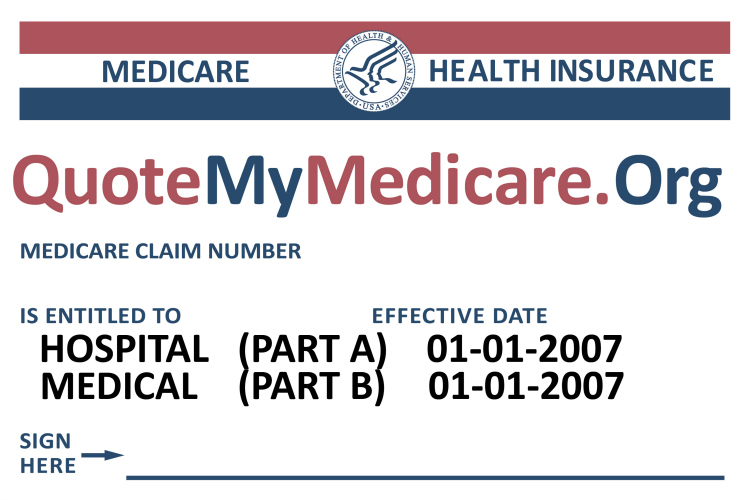If you’re one of the thousands of Baby Boomers who are turning age 65 this year (or you are already age 65 or over), you may be looking at your healthcare options through Medicare, and considering a UnitedHealthcare® Medicare Supplement. With Medicare Part A and Part B – which is also referred to as Original Medicare – there are a wide range of protection options, including coverage for hospitalization, doctors’ services, outpatient procedures, and even various medical equipment and supplies.
But did you know that Medicare Parts A and B also require a long list of out-of-pocket charges such as deductibles, copayments, and coinsurance? These costs can really add up. But there is a way to fill in these “gaps” in Medicare’s coverage. This is through the purchase of a supplemental insurance product like a UnitedHealthcare® Medigap plan.
Should You Purchase a Medicare Supplement Insurance Plan?
Medicare Supplement is often referred to as “Medigap” insurance. Today, there are ten different Medicare Supplement insurance plans. Each of these are named after a letter of the alphabet. Plan A offers the most basic set of core benefits, which include coverage for:
• Medicare Part A coinsurance and hospital costs – up to an additional 365 days after Medicare benefits are used up
• Medicare Part B coinsurance or copayment
• Blood – the first three pints needed each year
• Medicare Part A hospice care coinsurance or copayment
All of the other Medigap plans must provide the core benefits that are offered in Plan A, along with other coverage options. Unlike Medicare Part A and B, Medicare Supplement insurance is not offered directly through the Medicare program. Rather, these plans are provided via private insurance carriers.
Why are UnitedHealthcare® Medicare Supplement Insurance Plans So Popular?
 There are many reasons why a UnitedHealthcare® Medicare Supplement insurance plan may be attractive – starting with the fact that UnitedHealthcare® has more than 30 years of experience in the Medigap arena. Based on overall customer satisfaction, and stable rates, UnitedHealthcare® medicare supplement reviews have continued to be positive.
There are many reasons why a UnitedHealthcare® Medicare Supplement insurance plan may be attractive – starting with the fact that UnitedHealthcare® has more than 30 years of experience in the Medigap arena. Based on overall customer satisfaction, and stable rates, UnitedHealthcare® medicare supplement reviews have continued to be positive.
UnitedHealthcare®, is also a highly rated insurer, with favorable ratings from all four of the major insurance company rating agencies, including a(n):
• A from A.M. Best Company
• AA from S&P
• AA- from Fitch
• A3 from Moody’s Investor Services
As with all of the other Medicare Supplement insurance plans that are available in the market place today, the UnitedHealthcare® Medicare Supplement plan allows you to use any doctor or hospital that accepts Medicare patients. There are also no referrals necessary to visit a specialist you want to see, nor are there any network restrictions.
Medicare Supplement Plans Offered Through UnitedHealthcare®
If you’re considering a UnitedHealthcare® Medicare Supplement plan, you’ll have a number of different options to choose from. This can be beneficial, as not everyone’s healthcare coverage needs are exactly the same.
To learn which Medicare Supplement plans are offered by UnitedHealthcare® feel free to give us a call and we would be happy to discuss your options based on which state you reside in.
Medicare Supplement Comparison

How Medicare Supplement Premiums are Determined
Although each Medicare Supplement insurance plan of the same letter offers the same set of benefits, the amount of premium that is charged for each plan can differ – sometimes substantially – depending on which insurance carrier you purchase from.
There are several ways that an insurer can price, or “rate,” its Medicare Supplement insurance policies. These include:
• Community Rated
• Issue Age Rated
• Attained Age Rated
With a policy premium that is community rated, each policy holder of that particular plan – regardless of his or her age – will pay the same premium price. The amount of a community rated premium can, however, increase each year due to inflation and other factors. Community rated Medicare Supplement insurance policies are becoming more rare in the industry today.
Issue rated Medicare Supplement insurance plans use the policy holder’s age for its premium pricing. With this type of premium rating, the amount will be locked in on the start date of the policy. As with a community rated plan, the premium price with issue rated Medicare Supplement plans can also increase every year. These, too, are becoming somewhat less common in the industry.
The most common pricing model for Medicare Supplement insurance is the attained age rating. Here, the initial premium price is based on the policy holder’s age at the time the policy is purchased. Each year, then, a small age-related premium price increase will typically be implemented.
Another factor that can determine the amount that you’ll pay for a UnitedHealthcare® Medicare Supplement – or any Medicare Supplement insurance plan – is when you enroll in the coverage. It is generally best to purchase this type of coverage during the time period known as your Medicare Supplement Open Enrollment Period.
This is because if you purchase your coverage during this time, you cannot be turned down – or even charged a higher amount of premium – even if you have a pre-existing health condition. Your Medicare Supplement Open Enrollment Period begins on the first day of the month in which you are age 65 (or over) and also enrolled in Medicare Part B. It then runs for six full months.
If you wait to enroll in Medicare Supplement insurance coverage until after your open enrollment period has passed, you run the risk for paying more in premium, or even being denied altogether for the plan you apply for.
Should You Consider a Medicare Advantage Plan Instead?
Although their names may sound similar, there is actually a big difference between Medicare Supplement insurance and Medicare Advantage. Whereas Medicare Supplement helps to pay for various items and services that are not covered through Original Medicare (Parts A and B), a Medicare Advantage plan – also known as Medicare Part C – will provide an alternative way of receiving your Medicare Part A and B benefits.
In addition, many of the Medicare Advantage plans that are offered in the market today will also include coverage for prescription medications. This differs from Original Medicare (Part A and Part B) coverage, where you need to purchase a separate, stand-alone Medicare Part D plan if you want prescription drug coverage.
A Medicare Advantage plan may also be cheaper than going with Original Medicare. This is particularly true if you are factoring in the premium that you owe for Medicare Part B, Medicare Part D, and a Medicare Supplement plan.
However, a lower premium doesn’t mean that your overall costs will be less – especially when you factor in the deductibles and / or copays for many of Medicare Advantage services, as well as the potential for network restrictions.
Lower Premiums Do Not Equate to Better Coverage
Oftentimes, as with many other types of products and services, people will look only at the up-front “price tag” when making a purchase decision on Medicare coverage. But low premium price does not necessarily equate to a better offering – particularly when it involves your health care and medical services.
With that in mind, it is important to be sure that you know both the short- and long-term out-of-pocket outlay. And, once you’ve decided which type of Medicare coverage to go with, know that not all of these plans are the same.
For example, although Medicare Supplement plans are all standardized – meaning that all plans of the same corresponding letter must offer the same benefits, regardless of the offering insurance company – it is still important to have a good understanding of the insurer’s reputation for paying out claims, as well as its track record on increasing premiums.
Which Medicare Supplement Plan is Right for You in 2020?
In conclusion, utilizing UnitedHealthcare® supplemental insurance, can be a great way to reduce some of your out-of-pocket cost not covered by Medicare. Having this Medigap plan, complements your traditional Medicare coverage. When analyzing different Medigap carriers, always look at the overall big picture, not just the monthly premium. Things like rate stability, increase history, and of course premium are important to compare. Also look at what others are saying who have Medigap plans of their own. UnitedHealthcare® Medicare Supplement reviews continue to be positive overall around the country, which makes them a company and product to consider. Finally, examine which type of policy premium rating makes the most sense for you. Remember, the three pricing systems are:
- Community Rated: The same premium is charged to everyone each month regardless of age.
- Issue-age Rated: The monthly premium is based on how old you are when you purchase the plan. Initial premium would be lower for younger people. Future premium increases are not based on your age.
- Attained-age Rated: The monthly premium tied into your current age but can rise the older you get.
UnitedHealthcare® Medigap is community rated, and offers certain discounts which does make the premiums vary from person-to-person and by location.
Want to know more about which Medicare Supplement insurance plan may be right for you? We can help. We assist people in navigating their way through the Medicare Supplement insurance plan process. With more than a decade of experience in the Medigap field, we’ll get you the answers you need.
Get a FREE no obligation Medicare Supplement insurance quote, or schedule a Virtual Appointment with a Medicare Supplement expert. Our virtual appointment process makes it easy and convenient to get your questions answered directly, as well as to determine which supplemental insurance plans may be right for you – and for your budget.
*Plan F and Plan C are only offered to those individuals eligible for Medicare prior to January 1, 2020
last updated 4/09/2020

 Speak with an experienced advisor!
Speak with an experienced advisor! 